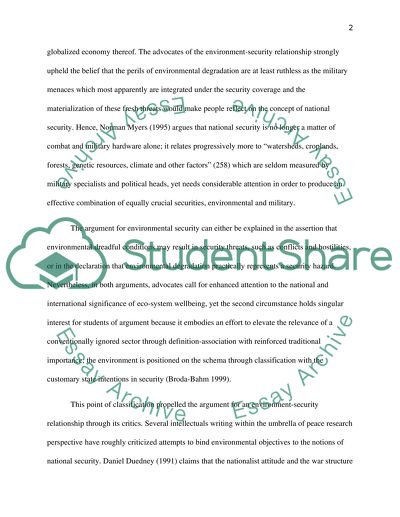Cite this document
(The Environmental Security Debate Assignment Example | Topics and Well Written Essays - 2000 words, n.d.)
The Environmental Security Debate Assignment Example | Topics and Well Written Essays - 2000 words. Retrieved from https://studentshare.org/environmental-studies/1516921-what-is-environmental-security-how-have-writers-on-environmental-security-challenged-the-notion-of-security
The Environmental Security Debate Assignment Example | Topics and Well Written Essays - 2000 words. Retrieved from https://studentshare.org/environmental-studies/1516921-what-is-environmental-security-how-have-writers-on-environmental-security-challenged-the-notion-of-security
(The Environmental Security Debate Assignment Example | Topics and Well Written Essays - 2000 Words)
The Environmental Security Debate Assignment Example | Topics and Well Written Essays - 2000 Words. https://studentshare.org/environmental-studies/1516921-what-is-environmental-security-how-have-writers-on-environmental-security-challenged-the-notion-of-security.
The Environmental Security Debate Assignment Example | Topics and Well Written Essays - 2000 Words. https://studentshare.org/environmental-studies/1516921-what-is-environmental-security-how-have-writers-on-environmental-security-challenged-the-notion-of-security.
“The Environmental Security Debate Assignment Example | Topics and Well Written Essays - 2000 Words”, n.d. https://studentshare.org/environmental-studies/1516921-what-is-environmental-security-how-have-writers-on-environmental-security-challenged-the-notion-of-security.


